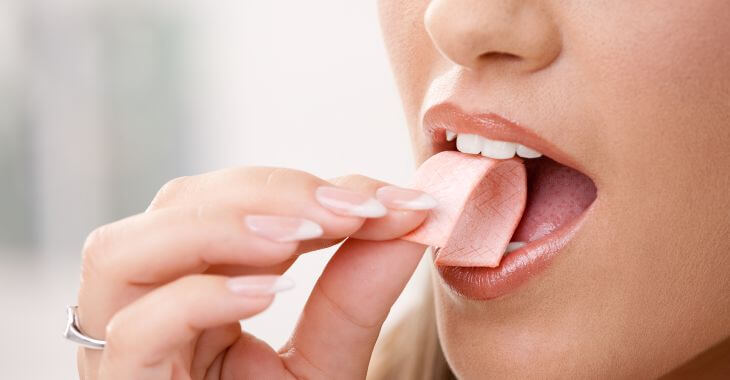Is Chewing Gum Bad for You or Your Smile?

A stick of gum can freshen your breath or keep your mouth busy. From sweet bubblegum for kids to gum with whiteners for adults, gum is loved by people of all ages. But is chewing gum bad for you or your smile? When it comes to caring for your teeth, you should know how what you put in your mouth impacts your smile. Here is what you need to know about chewing gum and how it affects your oral health.
What Is Chewing Gum?
Chewing gum has been used for centuries in one form or another. The action of chewing has been enjoyed before commercial chewing gum was created, but now there are many varieties. Chewing gum is meant to be chewed and not swallowed, but is considered harmless if occasionally swallowed by accident. The ingredients vary depending on brand and type, but most contain a type of gum or rubbery substance, resin, fillers and preservatives, as well as flavorings and sweeteners.
Is chewing gum bad for you? Most health professionals would agree that chewing gum is not bad for you, but some types are better than others. Those with sugar add extra calories and sugar to the teeth that most people could do without. There are some dental professionals that believe chewing the right gum may benefit your teeth and oral health.
Possible Benefits of Chewing Gum
There are a few benefits that chewing gum may offer, if you choose the right type. Most dentists and doctors agree that sugar-free chewing gum is the best choice for most kids and adults. However, not all sugar-free varieties are the same. The sweetener used can make a difference. Xylitol is a common sugar-free sweetener used in chewing gum that can be beneficial to teeth. If you are using chewing gum with xylitol and no sugar, there are some possible benefits.
- Reduced Cavities
- Chewing sugar-free gum regularly can help remove food debris caught in the crevices of teeth and limit bacteria in the mouth. It also stimulates salvia production that helps rinse away food particles and acids that can result in tooth decay or cavities. While brushing and flossing daily are important to reduce tooth decay, chewing sugar-free gum with xylitol between brushing may help reduce cavities.
- Improved Breath Odor
- Not only do the flavors and scents of gum help cover bad breath or mouth odors, but the excess salvia can help with breath odors. Dry mouths can allow bacteria that cause bad breath to flourish. Chewing gum can reduce embarrassing breath odor when you are not able to brush your teeth.
- Weight Loss
- While chewing gum does not make you lose weight, it may be helpful in reducing the urge to eat out of boredom or stress. The sensation of chewing may be what you are craving when you snack on unneeded food. A piece of sugar-free chewing gum between meals may help you stay away from snacks while enjoying a sweet, pleasant flavor.
When Is Chewing Gum Bad for You?
There are some situations where chewing gum is not good for you or your smile. As already discussed, gum sweetened with sugar is not good for teeth or the waistline. The sugar in gum can coat the teeth and feed bacteria that can cause plaque, tartar, tooth decay and bad breath. Some gums are sugar-free but contain sweeteners like aspartame that are controversial in their impact on health. You should know what ingredients are in the chewing gum and whether they are recommended by your dentist or doctor.
For some people with jaw conditions, chewing gum may irritate an existing issue. Individuals with temporomandibular joint (TMJ) disorders may aggravate the jaw joint by chewing gum. TMJ disorders can cause jaw and facial pain, as well as jaw dysfunction, headaches, ear aches and other symptoms. If you have a TMJ disorder or TMD, you should talk to your dentist and ask if you should avoid chewing gum.

Chewing Gum: Good or Bad?
For the most part, chewing gum is considered to be a harmless activity if you avoid products with questionable sweeteners, preservatives or sugar. In moderation, it can be an enjoyable way to freshen your breath and it may help with reducing oral problems like plaque and tooth decay. If you have jaw pain, you may want to avoid chewing gum as it may aggravate your jaw joint and surrounding tissues.
Is chewing gum bad for you or your smile? If you love to chew gum, but want to protect your health and smile, talk to your dentist. While chewing gum should not replace brushing and flossing teeth, it can be beneficial to oral health for some individuals. Your dentist can recommend whether or not chewing gum is safe for your smile and oral health.
The information provided on this website, including text, graphics, images, and other materials, is intended solely for informational purposes and should not be used as a substitute for professional medical advice, diagnosis, or treatment.




)